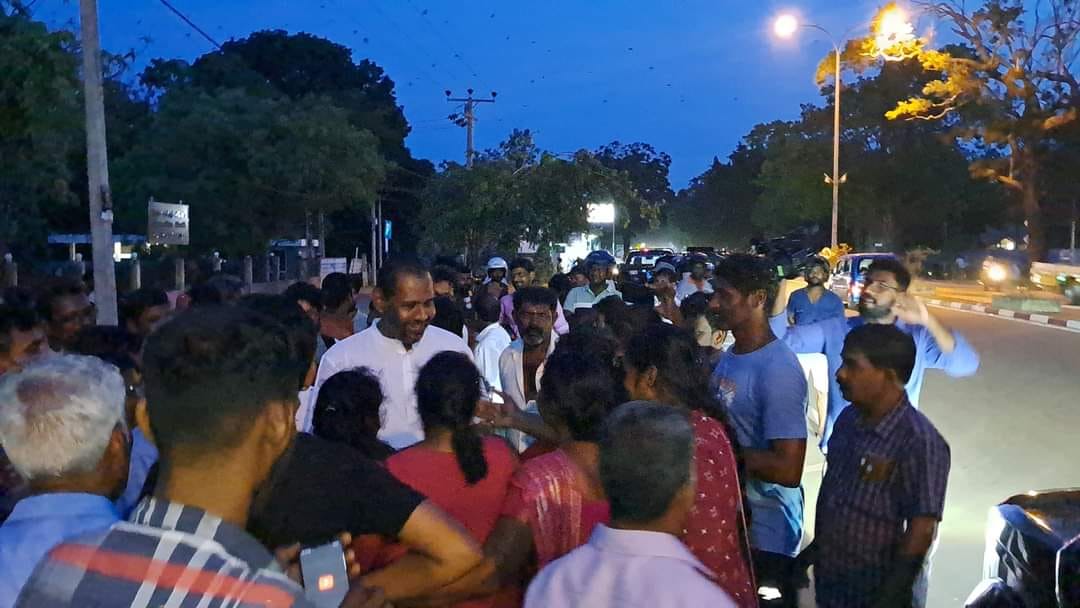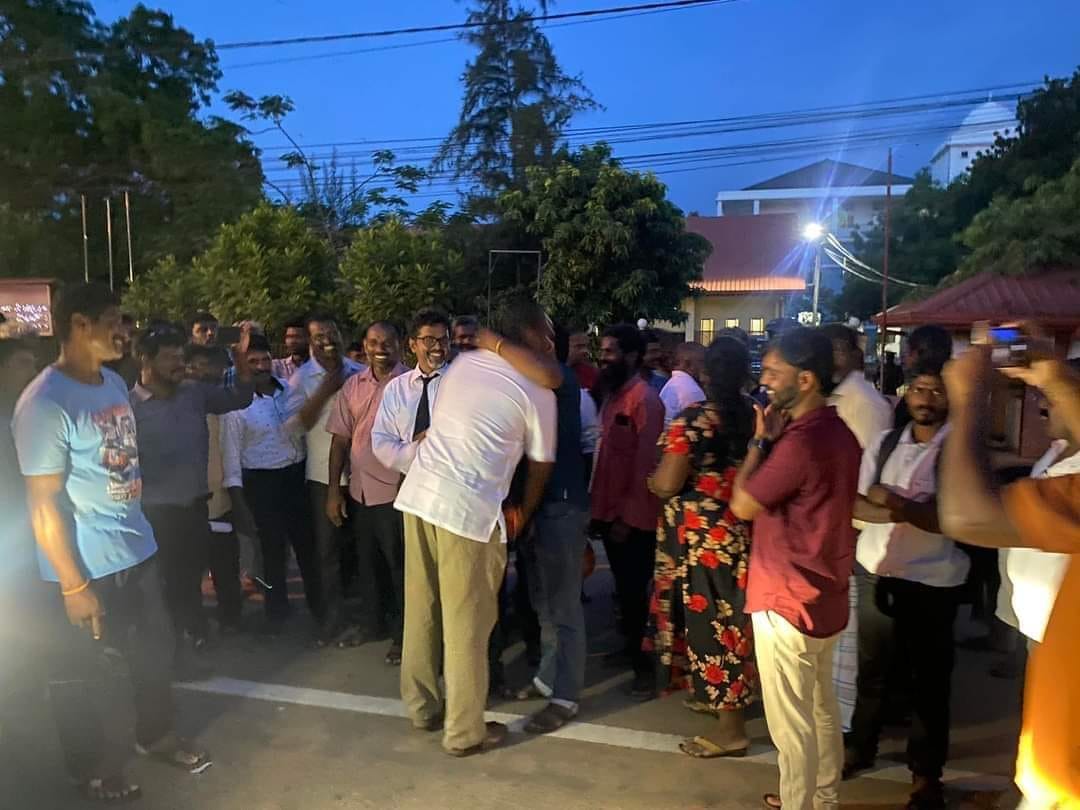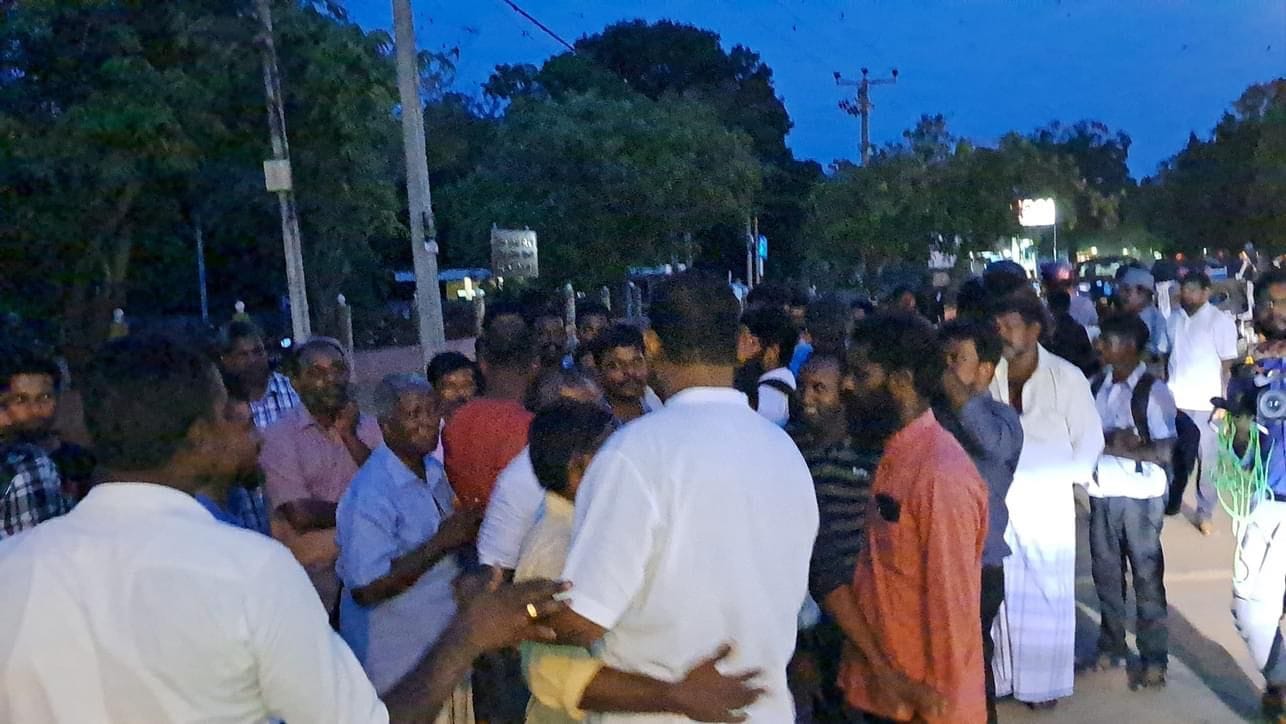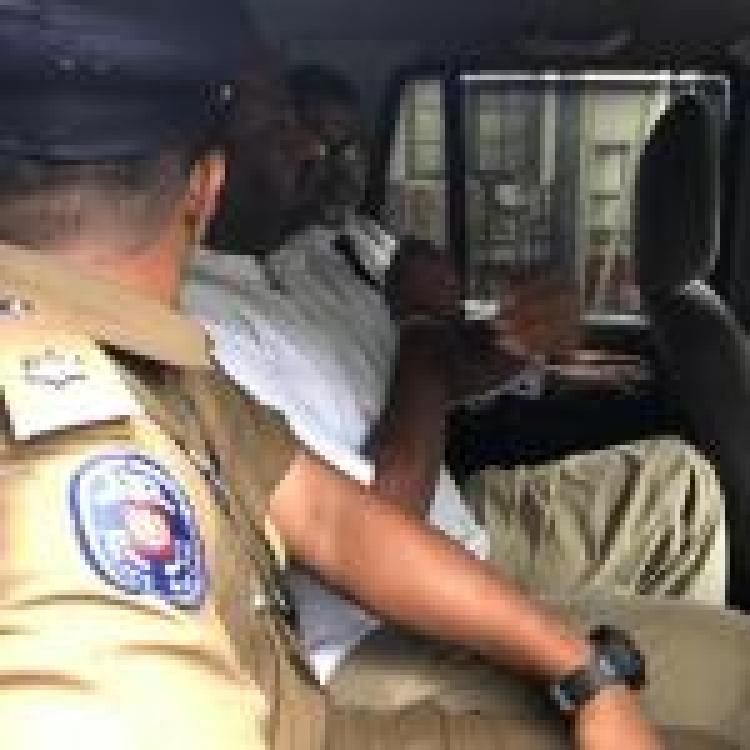
Crowd hugs Mr Ponnambalam outside Kilinochchi Magistrate Court following his release
Tamil National People's Front (TNPF) leader Gajendrakumar Ponnambalam was released on bail after he was arrested this morning.
This morning, Mr Ponnambalam was arrested at his home in Colombo this morning and was taken to Kilinochchi police station before being taken to Kilinochchi Magistrate Court.
Mr Ponnambalam was due to table a special motion in Parliament today regarding the assault and threats to life issued towards him by Maruthankerny police last week. The police department has since named him as an 'accused person' in the incident where he was assaulted and a loaded gun drawn on him by police officers in plain clothes.

Speaking to the media following his release, Mr Ponnambalam said that if his parliamentary privileges are not going to safeguard him from accessing lawful processes, the plight of ordinary Tamil people can only be imagined. He said that this incident is yet another example of the discriminatory nature of the legal process being applied to the general public, and that the international community needs to pay attention to this.
Mr Ponnambalam also said that it is clear that this case was expedited unnecessarily to prevent him from speaking about the incident that occurred on June 2 in parliament. He said that the way the police handled the incident, and the way the Sinhala media reported it, makes it clear that there was an agenda to obfuscate the facts of the incident in order to rewrite the narrative.

He noted that following the incident, two activists who work with the TNPF, who are respected within their communities, were placed under arrest by the Maruthankerny Police earlier this week. He said that the brutality and indignity with which they were treated, especially by being intimidated, is an attempt to silence them from producing evidence that will clearly incriminate the police.
Mr Ponnambalam stated that when a complaint is made against the police, they have to investigate themselves, which is a clear conflict of interest. He added that the same principle applies to the investigation of war crimes that were committed by the state during the final phase of the armed conflict. He said that the Sri Lankan state will never be capable of investigating itself, and that it is crucial that Tamils continue to demand to have an international investigation into the Tamil genocide.


